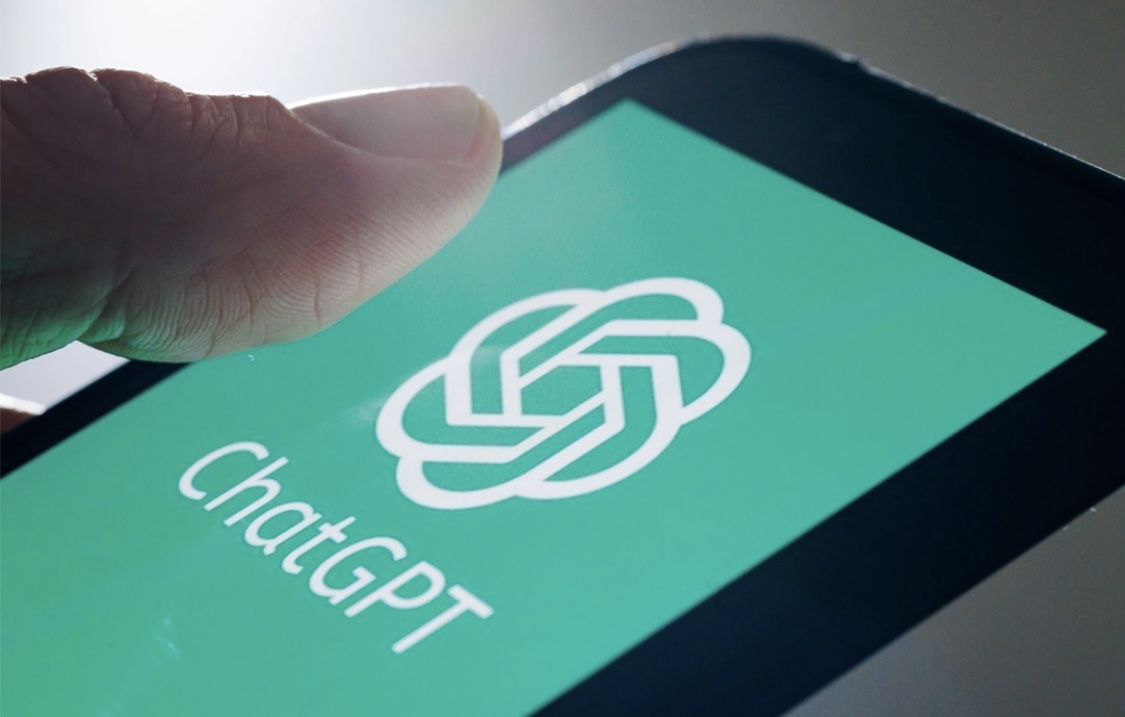A finance major in my building turned his laptop screen to me and asked, “Does this sound human?”
I know. Yet another alarmist op-ed about the big hoopla dubbed “the AI revolution.” By now, I’m sure you’ve been battered on all sides by an onslaught of think pieces, talk shows, television rants, trend forecasts, holiday dinner chats, social media posts, edicts from Congress, podcasts, press conferences and maybe even a class lecture or two all concerning The Artificial Intelligence (AI) Moment in our communities. It’s what has gripped the world lately in collective anxiety, and higher education has emerged as a primary theater for this “revolution.” However, in no place has the change become more visible than in the academic to white-collar pipeline most Rams have found themselves lodged within. For that reason, it seems absurd to me to pretend like I have anything new to say on the topic. But I have read the emails.
There’s one email dated from Jan. 18 that announces “Fordham-supported AI tools for the Spring 2024 Semester,” a move “driven by requests from fellow Rams to provide support for emerging technology.” This rollout includes a number of generative AI programs meant to assist students in their workload (as long as they can pass a “stringent but speedy evaluation process” and answer the IT Desk’s riddles three, of course). I think this change warrants deep reflection on why it has actually taken place. Is it worthwhile to make essay writing easier? For whom? What about research? Note-taking? I don’t want to run through the full rigamarole of questions raised by these new technologies, but it seems deeply at odds with why we’re here, at Fordham, in the first place. Personally, I came to become liberally educated, become a whole person and to become fit for service to God and man.
The details of this goal are explained on our school’s website as the ability to “analyze and synthesize information, articulate [one’s] point of view, make logical decisions for the good of [one’s] colleagues and community, and adapt to changing circumstances.” This type of skillset applies to a broad range of activity. They are as useful in business settings as in civic life, as grounding before the pulpit and at the pew and are very much needed in the vestiges of one’s own mind. The dream of the liberally-educated, “well-rounded” scholar has been standard fare at the university, well before the emergence of the Ramses Dynasty, and even longer before these traits were codified into being on our website. But the AI debate is more than just a wedge issue; it has revealed a growing, existential faultline in academia over the ‘Liberal Arts Question.’
If you ask most people (probably even a lot of individuals at Rose Hill), all education really boils down to is “getting kids ready for the workforce.” Clearly, the skills professed above — eloquence, logic, synthesis of ideas and the like — go a long way in that respect, and it’s why a liberal arts degree (regardless of the value in itself that some claim it holds) still holds quite a competitive advantage in many fields. But to be educated means more than to be able to perform and do tricks on command. It’s been said that the offices of the brain are like muscles — so much so that the comparison has become trite and overworked, like an abused bicep. But in order to build skills like “making logical decisions,” these muscles must be strained and exhausted again and again until they can regrow stronger, only in order to be flexed and sapped once again. Where one has given their time and attention to, there they shall find improvement. How else could skills like “self-expression” be practiced without, well, self-expression?
Without this repeated exercise, the mind flounders and becomes chained to its immediate surroundings — the obvious, the apparent, the insubstantial. This is the risk of reliance on AI. What part of that tool chest is advancing our goals at Fordham? We now have access to Google’s Bard and Microsoft’s Copilot, which were both spawned as imitations of the ChatGPT, and other fun props, like “Grammarly AI Writer,” have also been conferred onto us. These devices ease the burdens of articulating oneself, desiring truth in a world of contradiction and comprehending the meaning of another person’s work, and they dull the excruciating pain of academic thoughts.
Fordham is one of those rare institutions that encourages its students to seek for themselves. Thousands of fortunate adolescents have here found a trail where they will be trained in the very art of moving forward, not taken down a dead-end primrose way or merely shown the path to joyless, miserly wealth. Relaxed school policies towards AI undermine the essential nature of Fordham’s mission and our collective purpose. Education doesn’t mean anything if the barriers you’ve set up for yourself are trivial.
So far, every major breakthrough in the field of technology has brought on massive cultural change, and nobody expects generative AI to be any different. It already has. The tools Fordham IT has so proudly granted us are already changing the way we think and changing the way in which we’re reliant on our machines. I’m sure every one of us has a similar story that we could call up — everywhere, AI is changing our attitudes towards our education and our behavior, which are the most intimate aspects of our humanity.
Perhaps AI could reveal itself to be a great blessing for mankind. I don’t know. As of the time of writing, no technology has successfully improved or reformed the morality of our species. But until then, why must our campus be a proving ground for untested technology? Let the Ramily hold steadfastly to the good.
Pierce Liestenfeltz, FCRH ’27, is an international studies major from Scottsdale, Ariz.







































































































































































































